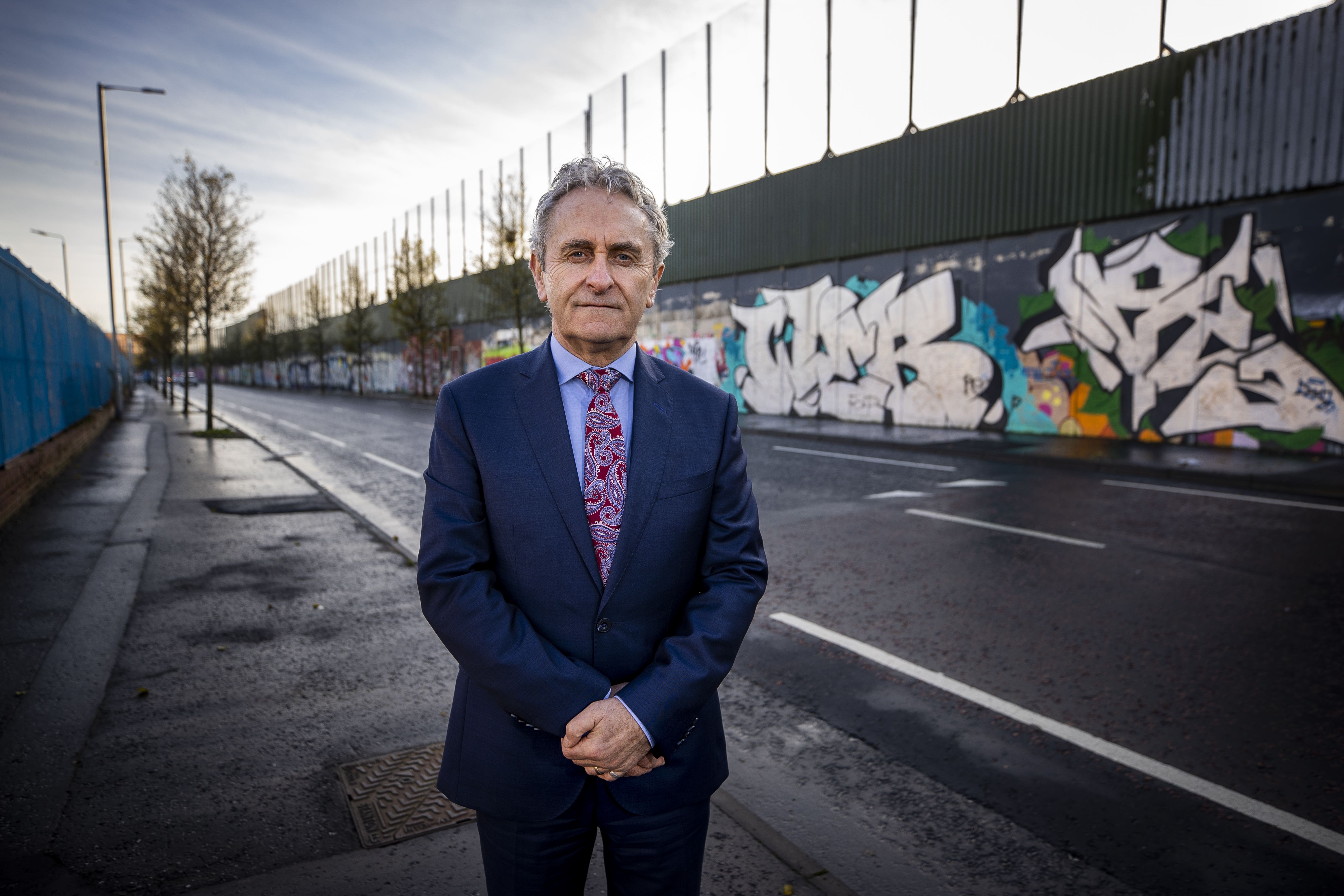Progress at five peace wall sites in Northern Ireland
International Fund for Ireland chairman Paddy Harte paid tribute to community-level work to facilitate the progress.

Your support helps us to tell the story
From reproductive rights to climate change to Big Tech, The Independent is on the ground when the story is developing. Whether it's investigating the financials of Elon Musk's pro-Trump PAC or producing our latest documentary, 'The A Word', which shines a light on the American women fighting for reproductive rights, we know how important it is to parse out the facts from the messaging.
At such a critical moment in US history, we need reporters on the ground. Your donation allows us to keep sending journalists to speak to both sides of the story.
The Independent is trusted by Americans across the entire political spectrum. And unlike many other quality news outlets, we choose not to lock Americans out of our reporting and analysis with paywalls. We believe quality journalism should be available to everyone, paid for by those who can afford it.
Your support makes all the difference.Significant progress has been made at five peace wall sites in Northern Ireland, the International Fund for Ireland (IFI) said.
The developments in areas of north Belfast, west Belfast and Londonderry are part of long-term and ongoing work in communities by groups across the traditional divide in the region.
More than 100 barriers remain and range from high concrete walls to gates and fences to buildings, and are owned by a number of bodies, from the Department of Justice, the Northern Ireland Housing Executive and private bodies.
They were erected from the 1970s in response to attacks and disorder during the Troubles.
However, work is ongoing to remove some and transform others.
Across 2021 and 2022, International Fund for Ireland (IFI) chairman Paddy Harte described significant progress at five sites.
The IFI funds groups working for progress around the barriers.
In north Belfast, a brick wall topped by meshing at the Duncairn Gardens/Tiger’s Bay interface in north Belfast was replaced with garden walls and decorative fencing.
At nearby Hillman Court/Duncairn Gardens, a peace fence on top of the wall beside the new houses at Hillman Court was removed and replaced with garden walls and fencing.
And at Adam Street/Upper Canning Street, a cage barrier was replaced with an open-mesh fence and the pedestrian gates beside Star Neighbourhood Centre.
Also in north Belfast, the Flax Street Gate has been replaced with an automated pedestrian and traffic gate, enabling access between Ardoyne and Crumlin Road in November for the first time in almost 40 years.
And the height of a tall peace fence in the Lower Oldpark/Cliftonville area was reduced in December.
In west Belfast, work is underway to remove a peace fence at Moyard Parade, and at the former Finlay’s factory site a peace fence was removed in December ahead of a redevelopment of the site.
In Londonderry, fencing on the city’s historic walls close to the Apprentice Boys of Derry building was reduced and replaced with normalised mesh fencing.
Transformation of peace walls is often done in a low-key way to avoid the risk of flaring tension.
Mr Harte said not many were there to witness the removal of the section of wall in Derry, but expressed delighted at the progress between the Bogside and Brandywell communities.
“It is a significant development on the walls. The walls are now basically open, all of it, and it’s a great sign of communities coming together and it’s also a good opportunity for tourism to develop,” he told the PA news agency.
Mr Harte also described the Black Mountain Shared Space (BMSS) programme as significant.
After long negotiations, the BMSS group, in conjunction with Belfast City Council, has negotiated capital funding to build a shared-space community facility with community enterprise units on the site.
It will enable the removal/redesign of several peace fences in the area.
“We’re going to end up with a state of the art community building. It’s a really interesting case study from where it started at the Finlay’s site when no one wanted to talk about it, to the point now where you have a shared space hub being built on them all,” Mr Harte added.
“Our objective all the time is to work with the groups and other funders. If you take down a wall there has to be something that will work for everyone.
“It’s another major success and once it gets underway, you’ll begin to get the domino effect. That’s the vision for the removal of other walls.”